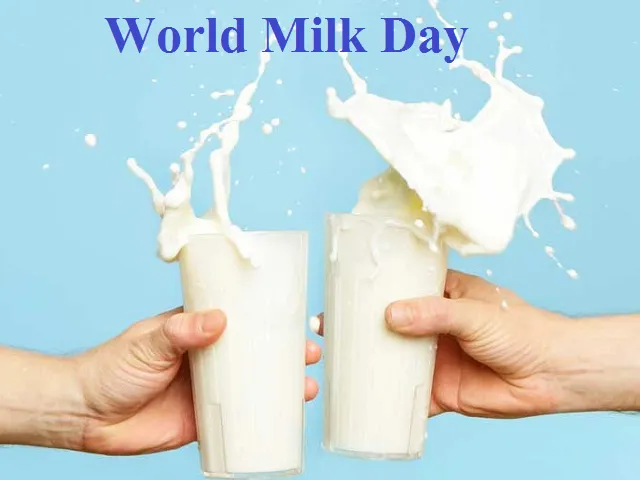World Milk Day is a significant global event that honors the importance of milk and the dairy industry in our daily lives. This annual celebration, observed on June 1st, brings attention to the nutritional value of milk and its role in supporting healthy diets, livelihoods, and sustainability. Let’s delve into the history, significance, and theme of World Milk Day.
Origin and History: World Milk Day was first established by the Food and Agriculture Organization (FAO) of the United Nations in 2001. The aim was to recognize the significance of milk as a global food and to raise awareness about the dairy sector’s contribution to the economy, nutrition, and overall well-being. Since then, World Milk Day has been celebrated annually on June 1st, involving various countries and organizations worldwide.
Significance: World Milk Day holds immense significance in promoting milk and dairy products as essential components of a balanced diet. It serves as an opportunity to educate the public about the nutritional benefits of milk, including its role in providing essential nutrients like calcium, protein, and vitamins. The observance also highlights the sustainable production practices, technological advancements, and innovation within the dairy industry.
Theme: Each year, World Milk Day is celebrated with a specific theme that reflects current global challenges, trends, and opportunities related to the dairy sector. The theme for World Milk Day 2023 is yet to be announced, but it is expected to focus on promoting sustainable practices, innovation, and the vital role of milk in nourishing communities and fostering economic development.
Celebrations and Activities: On World Milk Day, various activities and events take place globally to celebrate the dairy industry. These include educational campaigns, nutritional workshops, dairy farm visits, milk sampling programs, competitions, and awareness campaigns highlighting the social, economic, and health benefits associated with milk consumption. Social media platforms also play a crucial role in spreading awareness and encouraging participation through the use of hashtags and interactive content.
Global Impact: World Milk Day has a far-reaching impact, as it not only emphasizes the nutritional benefits of milk but also recognizes the efforts of dairy farmers, cooperatives, processors, and other stakeholders involved in the dairy industry. It promotes sustainable dairy practices, fosters partnerships, and encourages dialogue among various stakeholders to address challenges and opportunities within the sector.
Conclusion: World Milk Day serves as a global platform to celebrate milk, recognize the contributions of the dairy industry, and promote awareness about the nutritional benefits of dairy products. It brings attention to the role of milk in supporting sustainable development, food security, and the livelihoods of millions of people involved in the dairy sector worldwide. By acknowledging World Milk Day, we pay tribute to the dairy industry’s invaluable contributions and its impact on the health and well-being of individuals and communities around the world.
